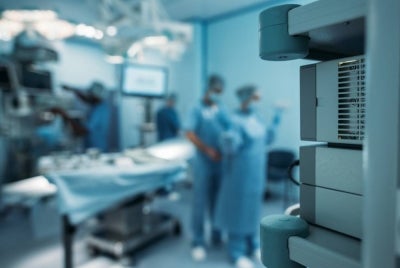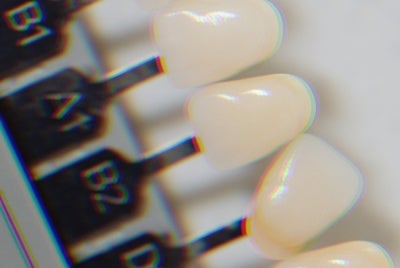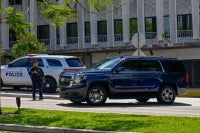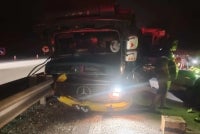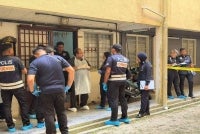Brain tumour can be detected among infants
NURUL SHAHAMAH ABDUL RAZAK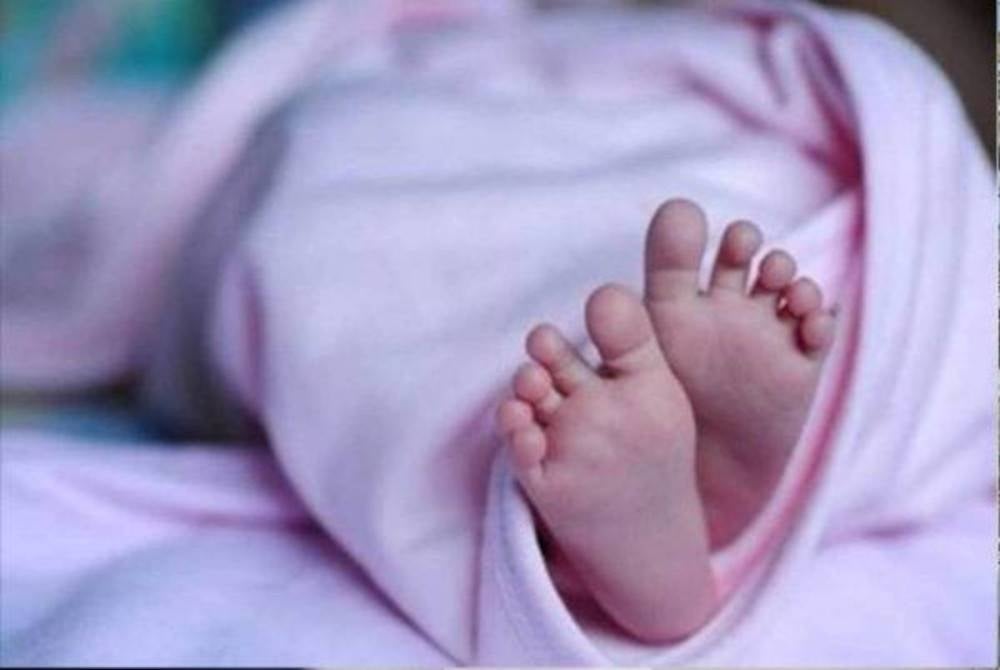
Boston Children's Hospital in the United States (US) claims that brain tumours are a rare case among children with a ratio of five per 100,000 individuals.
"Brain tumours in children can be benign (non-cancerous) or malignant (cancerous) both can be life-threatening. However, children have a better prognosis (prediction on the disease curing) than adults," said the hospital.
Statistics showed around 2,200 children and teenagers in the US are diagnosed with brain tumours every year and the group would continue to hold on until adulthood.
"They would face the challenges from a physical, psychological, social and intellectual standpoint," added the hospital.
The American Society of Clinical Oncology report said brain cancer was the second highest that children suffer (26 per cent) with Leukaemic blood cancer at the top ranking at 28 per cent.
The numbers in Malaysia were reportedly around 3,000 to 5,000 cases (involving all ages).
Tunku Ampuan Besar Tuanku Aishah Rohani Hospital Neurosurgery Unit chief, Universiti Kebangsaan Malaysia Children's Specialist Hospital Associate Professor Dr Azizi Abu Bakar said the reason for the child to suffer through the disease had yet to be identified, but the cause may be related to the environment, lifestyle and food consumption.
Exposure towards cigarette smoke would not only affect adults but also infants and children.
He explained there is evidence that shows mothers who smoke could cause the infant's brain to become smaller, stunt its growth or cause cancer.
"This is due to the fetus benefitting from the mother. Therefore, the mother's dietary habits or lifestyle indirectly affects the child in the womb," he said.
Dr Azizi said even if the tumour is small while in the womb (three to five months) it can be detected through an ultrasound.
Other complications such as a long delivery or a baby born with a large head can be signs of brain cancer.
He said there is no real evidence that genetics contribute to brain tumours.
"In some cases, despite parents not having cancer, their child is still at risk of cancer," he said.
The Cleveland Clinic said there are several types of tumours in children, it consisted of gliomas, embryonal tumours (such as medulloblastoma and medulloepithelioma), Pineal tumours, Craniopharyngiomas, Germ cell tumours, Choroid plexus tumours, schwannomas and meningiomas.
Dr Azizi said gliomas and medulloblastoma were the most common cases.
"Glioma is a cell growth that starts in the brain or spinal cord. The cells in a glioma look similar to healthy brain cells but can grow to form a mass of cells or tumours.
"A medulloblastoma is a tumour that presses on the back of the brain or a part of it called the cerebellum. It can cause the child to suffer from cataracts,“ he explained.
It would generally occur in children aged three to eight years old and most recorded patients were boys.
Dr Azizi shared that the symptoms are caused by increased pressure to a block in blood circulation in the brain.
"The child would suffer headaches up to a point where they would knock their own head.
"The pain suffered would usually cause the entirety of their head to be in pain with the pain eventually subsiding in stages," he said.
If a tumour occurred in the cerebellum area relating to the body's balancing mechanism it would cause them to wobble while walking.
Other symptoms include nausea and vomiting, headaches, blurred visions, seizures, loss of consciousness and exhaustion or constantly feeling tired.
When asked about treatments Dr Azizi said operations are unavoidable as the process was necessary to remove as many cancer cells, the same also falls for radiotherapy and chemotherapy.
The treatments would have to consider the child's age, size, position and type of brain cancer.
Cancer Research UK added the need for experts to see it from other contexts such as whether the tumour had spread onto the brain or spinal cord. How fast is it growing and how good is the child's general health?
If the cancer cell had become aggressive and it did not give a good response to the treatments, there is a possibility that the child would become disabled, but death would be imminent if not treated.
Dr Azizi said the recovery rate depends on the grade and type of cancer.
"After the treatment is given it is important for the patient to undergo tests every six months for a duration of five years to ensure the cancer does not spread again," he said.
He added doctors would not provide treatment when the patient is at a later stage, but they would aid them in terms of bringing comfort to those individuals.
Sunway Medica Centre, Paediatric Haematology and Oncology consultant Dr Yap Tsiao Yi viewed that children visited for brain cancer would suffer several changes including changes in intellect and motor functions, which would influence their learning capabilities.
"Children suffering benign tumours are allowed to attend school and perform daily activities as per usual.
"However, for malignant cancer that is aggressive and multiplies very quickly, it requires more comprehensive and intensive treatment," she said.
The treatment process would impact their schooling sessions which was a harsh reality.
"The medicine taken by the patient will lower the body's resistance and make them unfit to go to school. Therefore, parental monitoring is very necessary.
"Wheelchairs or walking aids are recommended for use if the child has motor function problems causing them to be unable to walk steadily and those having vision issues," she said.
She reminded children undergoing treatment to avoid heavy exercise and not to play outside without the supervision of a guardian.
The advice was often expressed as if the child falls, visual impairment can be affected and it could reduce the balance of the body.
"However, this didn't mean that the child could not move. They must follow a physiotherapy session to strengthen themselves and avoid their muscles from shrinking," she said.
She added the medicine taken could disturb the body's cycle therefore they must eat a balanced diet that is prepared properly.
"It has nothing to do with the nutritional value of the food, but to prevent the group from being infected with germs and fungi from raw food," she said.
Dr Yap when asked whether stress contributed to brain tumours answered there is no concrete evidence that stress could worsen cancer.
"There is no concrete evidence that stress worsens cancer. The level of stress a child can tolerate is different. My advice is to look at the capabilities of the child and aid them in their daily activities," she said. - SINAR PLUS
Download Sinar Daily application.Click Here!


